|
The Foot of Montségur A rumor said we crept in and dug like animals a hollow for the grail. The friars weren’t listening at Albi or Verfeuil. We buried nothing. I think of the spaces where we existed. Landscape is a corner of my eye: papery like dry ashen leaves. The crusaders brought a map with blue cut into the outline of our Languedoc. I touched the lightweight edge, the places where our caves would be; we worshipped in the walls. I loved to steady the child’s head with a light touch on the ear, her patient stare while I combed the long hair back, breathed the cold cutting air, and buried the afterbirths. I knew there was no mistake about the body and routine. God did not send us out, but back. The most physical of all, I rocked as in a body, what I felt a boat must be. I see rocks, transparent, how grainy water is, and finally I watch the iron density of flame. All night, sun sets on the town. Easily they fit us in the circle. We are the last of us. Previously published in Pricking (Tiger Bark Press, 2016). Jessica Cuello is the author of Hunt, a feminist response to Moby Dick and winner of The 2016 Washington Prize from The Word Works. Her other collections include Pricking (Tiger Bark Press, 2016) and the chapbooks My Father’s Bargain (2015), By Fire (2013), and Curie (2011). She was the winner of The 2013 New Letters Poetry Prize, a winner of LUMINA’s poetry contest (selected by Carolyn Forché), the recipient of a 2015 Saltonstall Writing Fellowship and the recipient of the 2014 Decker Award from Hollins University for outstanding teaching. https://jessicacuello.wordpress.com/ I Could Be A Whale Shark Bolinao, Philippines I am worried about tentacles. How you can still get stung even if the jelly arm disconnects from the bell. My husband swims without me—further out to sea than I would like, buoyed by salt and rind of kelp. I am worried if I step too far into the China Sea, my baby will slow the beautiful kicks he has just begun since we landed. The quickening, they call it, but all I am is slow, a moon jelly floating like a bag in the sea. Or a whale shark. Yes—I could be a whale shark, newly spotted with moles from the pregnancy-- my wide mouth always open to eat and eat with a look that says Surprise! Did I eat that much? When I sleep, I am a flutefish, just lying there, swaying back and forth among the kelp-y mess of sheets. You can see the wet of my dark eye awake, awake. My husband is a pale blur near the horizon, full of adobo and did not wait thirty minutes before swimming. He is free and waves at me as he backstrokes past. This is how he prepares for fatherhood. Such tenderness still lingers in the air: the Roman poet Virgil once gave his pet fly the most lavish funeral, complete with meat feast and barrels of oaky wine. You can never know where or why you hear a humming on this soft earth. Previously published in Asian American Literary Review. Aimee Nezhukumatathil’s fourth book of poetry, Oceanic, is forthcoming from Copper Canyon and her nature essay collection is forthcoming from Milkweed, both in 2018. She is poetry editor of Orion and is the Grisham Writer-in-Residence at the University of Mississippi's MFA program. Worried Man Blues Halfway through the song, the dog bumped his big black pit bull head against my leg and I stopped-- small rest between the banjo and the guitar player who never sits down. My ragged chords caught their breath, the bow dropped and turned and pressed against the fiddle, freeing one hand to hold that warm, soft ear with its own dark valley of music. Previously published in Gold Man Review. Amy Miller’s poetry has appeared in Nimrod, Rattle, Willow Springs, and ZYZZYVA. Her chapbooks include I Am on a River and Cannot Answer (BOAAT Press) and Rough House (White Knuckle Press), and she won the Cultural Center of Cape Cod National Poetry Competition, judged by Tony Hoagland, the Jack Grapes Poetry Prize from Cultural Weekly, and the Earl Weaver Baseball Writing Award. She works as the publications project manager for the Oregon Shakespeare Festival and blogs at writers-island.blogspot.com. The Garden Came First Eve was framed. (bumper-sticker) Perhaps she was already weeding. You know how it is: step into the yard for a moment because you hear birdsong then glance down at the ground and see weeds everywhere. You have to do something, which means you have to decide: oxalis or chamomile? vinca or Bermuda grass? dandelion or morning glory? So, which one was put here on purpose? Previously published in Quiddity. Annie Stenzel was born in Illinois, but has lived in several places on both sides of this continent, and in a number of other countries. She received both a B.A. in English Literature and an M.F.A. in Creative Writing from Mills College in Oakland. Her poems appear in a wide range of print and online journals, from Ambit to Rat's Ass Review, with stops at Blue Lyra Review, Catamaran Literary Reader, Eclectica, Kestrel, and Quiddity, among many others. By day, she works at a mid-size San Francisco law firm. Her full-length collection, The First Home Air After Absence, will be published later this year by Big Table Publishing Co. Karma We become poets In an attempt to tether words To righteousness, Our notebooks To social consciousness. Sitting cross-legged and anxious in Wing-backed chairs we Sip lattes to news of regimes Firing American-made artillery into Crowds of folk, Their bodies pickled by the sun They line streets in countries We never think about and We suck our teeth and Ask a thesaurus to become a machete And as romantic as passivism is These days I dream of dictators falling headfirst Into karma and forget to be afraid If I could write this shit in fire, I would write this shit in fire. This ain’t poetry. It’s rage, unmuted. A verb, a means, an end, This is my body. This is a sacrifice. This is an offering. This is Southside Chicago, Compton, California, Red Hook Projects in Jersey, Roosevelt Projects in Brooklyn. This is severed hands. Clubs against flesh, Black boots to pregnant bellies, This is sterilizations, Inoculations, Leg irons and chains, The bit and the noose, This is a war cry. Tell Massa I’m coming back. Carrying fire in my knapsack, Tell him I am Patrice Lumumba Steven Biko, Fred Hampton, Fannie Lou Hamer Harriet Tubman Tell him they have been born again in me. Tell him I found my mother tongue Buried under the rubble of The World Trade Center Tell him this shit ain’t no poem. This is me, running naked From sugarcane and cotton fields Having dropped my croaker sack. Tell him he can call me karma. I am re-fleshing the bones. A witch, a root-worker, A sorceress, a priestess, a gangster… Tell him this is the result of segregation. Tell him this is the result of integration. Tell him I have never been invisible. Tell him he has never been invincible. Tell him I will melt the barbed wire and Steel bars of prison yards They will flow over him like lava. I am returned I am blood-thirsty I am fangs and hooks and Swollen feet in welfare lines, The gauntlet thrown down, Lines drawn in the sand I am apocryphal. Historical deletions gathering themselves Up and into textbooks, I am the niece of exploitation On a rice and pancake box, Come to collect the royalties For Aunt Jemima and Uncle Ben… I am a line of smoke, A rain dance, The tomahawk used to kill the first invader, A passbook in South Africa, A Whites Only sign on a courthouse door In Mississippi, The streets of Benghazi pocked in Prayer beads and shell casings, The juxtaposition of faith and savagery. Tell him I am African wide hips and American bulimia, Peace symbols on assault rifles, It is the deepest kind of contradiction. If I could write this shit in fire, I would write this shit in fire. Tell Massa I’m coming back. Howl in the wind, I’m coming back. Bur in his heel, I’m coming back. I’m coming back Massa. I’m coming back Massa. I’m coming back. Previously published in They Are All Me (Swimming With Elephants Publications) Dominique Christina is a mother, published author of three books, licensed educator, 2x Women of the World Slam Champion, 2011 National Poetry Slam Champion, 2013 National Underground Poetry Individual Slam Champion, social agitator, and intersectional feminist. She is the only person to win the Women of the World Championship twice. Her work is influenced by her family's legacy during the Civil Rights Movement. Her grandfather, who is in the baseball hall of fame, was a shortstop for the Kansas City Monarchs in the Negro Leagues. When he left, Jackie Robinson, who later integrated baseball, took his place. Dominique's aunt is a Congressional Medal of Honor recipient for being one of 9 students who desegregated Central High School in Little Rock Arkansas. Dominique is sought after to teach and perform at colleges and universities nationally and internationally every year. Her work appears in numerous literary journals and anthologies, the Huffington Post, IBTimes, Upworthy, Poetry Magazine, etc. http://www.dominiquechristina.com/ Lunar Longing: Do Moons Have Lips? First word? Moon. We’re not sure if it is the m of mama or divine bovine hum, this naming of satellites to spin a planet, outer spacey, cosmo naughty, having mastered the o-ring and its fallacies, its aborted missions witching fluids can tap moon rocks in her pockets. Women thirst a milky blue. Dowsing the moon is a matter of debate, iceglint below a dry surface in the crater’s shadow, a pocket of H2O lodged by a meteor hunk hurled across the black vacuum, which sucks all manner of moisture into the void, her last words—Mulled Moon, Must Moon, Mute Moon. Previously published by Fourth River. Seven-time Pushcart nominee and finalist for the Discovery/The Nation Award, Janet Norman Knox's poems have appeared in Tupelo Quarterly, Los Angeles Review, 5 AM, Crab Creek Review, Rhino, Bellingham Review, Fourth River, Diner, Seattle Review, Adirondack Review, and Diagram. Her play, 9 Gs and the Red Telephone, was featured in Feminist Studies. She received the Ruskin Poetry Prize (Red Hen Press) and the Los Angeles Review nominated her for Best New Poets. Her chapbook, Eastlake Cleaners when Quality & Price Count [a romance], received the Concrete Wolf Editor's Award. http://www.rattle.com/ereviews/knoxeastlake.htm Janet collaborates with artists Anne Beffel (Jack Straw Foundation and Duwamish Revealed Grants) and Vaughn Bell (4Culture and Duwamish Revealed Grants). She currently has an exhibit at the Jack Straw Foundation Galleries. Her play, Artifact Pattern—Observations on the Behavior of Homo Sapiens in Change, was hosted by the Bainbridge Island Art Museum in 2016. Janet is an entrepreneur and Environmental Geochemist, her company turning 30. Martha Stewart’s Guide to the End Times Of course you know I love those little drones, so I’ve stockpiled them. Those and lemons. I’ve learned the hard way that life without lemons is barely worth living. Animal husbandry 101: Fill your own organic pantry. Which breed of chicken will give you the best eggs under stress? Pg. 13. Leave the fondant til later. You can always do a ganache topping for your cupcakes in a pinch. So simple! Evacuation map for New York City, Boston, the Hamptons, with scratch-and-sniff icons: page 24. Survival skills are just like hostess skills: a little preparation, a little spying (with the drones,) a little determined defense-driven hedging of the grounds. Razor wire goes beautifully with your holly thicket. Guide to storing munitions in attractive wicker boxes: page 52. If your water isn’t as clear as it should be, use up those charcoal filters first, but after, try a solid iodine tablet in your home-dug well. In these times, it’s a good thing. Culinary tips for after the mega-store raid: mixed nuts have a long shelf life. Throw in a little rosemary and toast them over an open flame for anytime elegance. More ideas for those family-sized tubs of popcorn: page 68. Now’s the time to get out your hurricane lamps! They create a lovely glow in these last days. Previously published in Field Guide To The End Of The World (Moon City Press, 2016). Jeannine Hall Gailey served as the second Poet Laureate of Redmond, Washington. She is the author of five books of poetry:Becoming the Villainess, She Returns to the Floating World, Unexplained Fevers, The Robot Scientist’s Daughter, and Field Guide to the End of the World, winner of the Moon City Press Book Prize. Her work has been featured on NPR’s The Writer’s Almanac, Verse Daily, and in The Year’s Best Fantasy and Horror. Her poems have appeared in The American Poetry Review, The Iowa Review and Prairie Schooner. Her web site is www.webbish6.com. Twitter handle: @webbish6. Excerpt From Diatomhero: Religious Poems I was two places at once: One side of my body bleeding indistinguishably into Oneness, like an inkblot, The other sketching the actual picture, Past and present lives Back to back, in a Star Wars trash compactor. After awhile I opened my napkin and recognized myselves, Two Versailles rivals turning fans to each other’s disdain, A flattened hydra peeling itself off a window, “Beast turning human,” like Nora Flood’s lover. But there were no sounds, Only subtitles, Languages rushing at me, like insects Suddenly displaced from recognition, Czech buzzing into my left ear, like a swarm of flies, German booming out into the forest, The dullness of tomato plants Buzzing with flies That had no sound or life In either dimension, A photograph of what my perception had looked like when it had been mine. So I didn’t know if I weren’t a Soldier, hidden among the tall marshes, Dressed in one of those grass suits Or Miss Jessel, beckoning across the river: A brute’s opaque smear coming up the other side of a retina filmed over As frosted glass, behind which he still moved with his candles Suddenly running clear, Like the eyes of the first people Before ancestry polluted them Little shoots of green coming up, in the Original Dark Eye of Jerusalem To make hazel With its hope of fecundity through the earth. They said, after the war, we lost each other I said, after our deaths, we lost each other Refugees, displaced persons I had no way of knowing I’d not just picked an armful of my Daughter, reborn as lilies For an Easter bouquet, That my son wasn’t a dog Busily digging his old human bones up out of the earth And gnawing on them; One of a flight of Canadian geese Circling over the airports where the dying swallow their memories as drug mules, shit them out and break them open in the next life, Like Aesop’s golden egg The freezing looking into photographs of a sun that can’t warm them The starving looking into photographs of food they can’t eat Knowing that they can no longer stretch out the past As a frugal mother stretches out meat and potatoes From casserole to stew. With ever more mouths to feed, Until five hundred lives cannot consume the rations for one, And we are too menny. But even in one life When I said, “I can’t live without you” It meant a lifespan in a body I could not live without that kept changing Into a different body. As if I were committing adultery On the you of 21 with the you of 51. Appropriating someone else’s love And calling it mine So that, at eighty I couldn’t wish to stand dazed, in the photograph of myself on the street we lived on in 1950 A sepia handkerchief that had once been red in my lapel Without simultaneously being a widower, lying awake nights, weeping Shooting blanks into the air That might fertilize whatever was Left of you, in the air around me, Engendering little ghost children Who would peer at me, noses against “the transparent glass of the world” Like urchins at Christmas displays Faces all plastered with ectoplasm, like sticky jam. Prelude to the moment When a soldier, dying on the battlefield in ancient Greece Flows into his reincarnation as a Girl, blonde and Norwegian, in the high country His life wrenched out of him like a discus That goes flailing off to the Lord Trailing roots, black against the sky As reincarnation only on the Rebound, like love The solar eclipse picking up our images like a Xerox Albeit in a delayed assembly; In “millions of tiny pieces,” like Mike Teavee The invisible, becoming durable as humidity, And just as scientifically proven: an element inciting a reaction: sweat, an increase of insects, Anything indigenous to a climate And just as wonderfully taken for granted By those who exist under it Dying to and in that as naturally, casually as: the sun. We knew it rose on the other side of the world But we didn’t care Any more than any more than a sluggish reptile in Texas Is aware of the vast majesty of the land stretching around it To Nebraska, or The Rockies, or the Badlands Or anywhere but the corner on earth in which it is tucked away. Plants in Australia Turn to the sun only on the continent they’re indigenous to and know no more about Antarctica than the polar fishes about the Kalahari Any more than two incarnations of the same person, one centuries ago, one now Her hair flying back into his face like a Springsteen song Know which is “the real” them Stuffed with mirrors Donning contact lenses with every other life, The original color always under the new; Each eye reflecting the life it inhabits: A fret of Russian cloud sliding across your iris one life, Birds in a perfectly blue sly, en route across Minnesota, in another Genealogy turning on a color wheel The weight of a soul Up and down, like Liz Taylor’s size; Deprivation stuffing abundance into every other life One bloodline exsanguinated, The next offering it a transfusion. Previously published in the collection diatomhero: religious poems (Vulgar Marsala Press, 2012) Lisa A. Flowers is a poet, critic, cinephile, ailurophile, and the Reviews Editor for Tarpaulin Sky Press. She is the author of diatomhero: religious poems, and her work has appeared in various magazines and online journals. Raised in Los Angeles and Portland, OR, she now resides in Colorado. Visit her here. White People Always Want To Tell Me That They Grew Up Poor White people don’t like when you say: white people. White people like to remind you that you are Indian, not black. Black people never say that to you. They make a home for you inside their archives. It is like an elegy. Poverty must be a color but color is like sky. My daddy is a daddy from Africa. An Indian boy from Tanga. He is a papa who stitches eyes together–– a doctor, the only one of his siblings, seventeen in all, to really get out and climb towards the lands that enslaved him. Only white people can imagine a past that was better than now. Only white people have nostalgia. You grew up rich, they say. Your daddy is a doctor. They want me to possess their whiteness, too. They want to spread it outwards like the tentacles of a squid. What they are really saying is: How dare you have what was rightfully mine. I want to say: Squid, my daddy holds storms from a world you’ve never seen. He is a doctor because being a doctor was a way to unbury his dead. I want to say: It is not me you hate. It is that you were not given what whiteness promised you– what your TV said all white people could have. My daddy didn’t have a TV. My daddy is from Africa. My daddy is not a thing like your daddy. Our house was not a thing like your house. Our household was not held by anything you could name. If you swam in it, you wouldn’t even know it was water. Previously published in The Common. Megan Fernandes is an Assistant Professor of English at Lafayette College and lives in NYC. Her work has been published or is forthcoming Rattle, Guernica, Denver Quarterly, Hayden's Ferry Review, The Common, Thrush, The Adroit Journal, The Boston Review, etc. You can find out more about her work here: https://megfernandes.wordpress.com/ Excerpt from A Single Throat Opens
Dear M_____, I want to tell you a story that never happened. I want to tell it so often truth won’t matter. This is misleading, however. Truth never matters. * Adult children of alcoholics (ACA) lie when it would be just as easy to tell the truth. This is the third of thirteen characteristics according to the ACA website. * Dear M_____, Have you ever played the ice breaker two truths and one lie? I’ve played this so many times at different functions, professional or otherwise. It’s liberating. To deliberately lie and be rewarded for it. Here, I’ll begin: My father is an alcoholic. And because he never hit me I believed well into my twenties he was a good alcoholic. Look me in the eyes; tell me where the lie resides. * Melts wax, burns wick and wood, wounds flesh in a little circle. Here, where I pressed a lit match into the skin of my left forearm. “Don’t cry. Your wounds are beautiful if you’ll love mine.”[i] My father, like fire, consumes the thing that sustains him until both diminish to nothing. Now, tell me about your father. [i] from William Matthews’ poem “Oh Yes” (The question: would you like one more drink?) Published in A Single Throat Opens (Black Lawrence Press, 2017) Meghan McClure lives in Washington. Her work can be found in American Literary Review, Mid-American Review, LA Review, Water~Stone Review, Superstition Review, Bluestem, Pithead Chapel, Proximity Magazine, Boaat Press, Black Warrior Review, among others. Her collaborative book with Michael Schmeltzer, A Single Throat Opens, will be published by Black Lawrence Press in June 2017. Visit her on Twitter at @meghantmcclure or at her website meghantmcclure.com. BIO: Michael Schmeltzer was born in Japan and eventually moved to the US. He is the author of “Elegy/Elk River,” winner of the Floating Bridge Press Chapbook Award, and “Blood Song” (Two Sylvias Press, 2016) his debut which was longlisted for the Julie Suk Award for Best Book of Poetry Published by an Independent or University Press. He earned an MFA from the Rainier Writing Workshop. His debut nonfiction book, “A Single Throat Opens,” written in collaboration with Meghan McClure, is forthcoming from Black Lawrence Press. His work can be found in Black Warrior Review, PANK, Mid-American Review, Rattle, and other journals. Visit him on Twitter at @mschmeltzer01 or at his websitemichaelschmeltzer.com. |
Blog HostNatasha Kochicheril Moni is a writer and a licensed naturopath in WA State. Enjoying this blog? Feel free to put a little coffee in Natasha's cup, right here. Archives
October 2019
Categories |
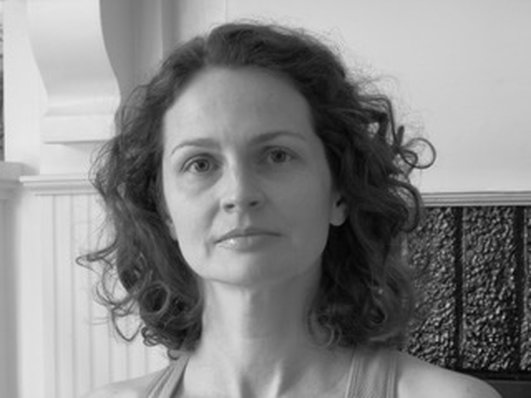
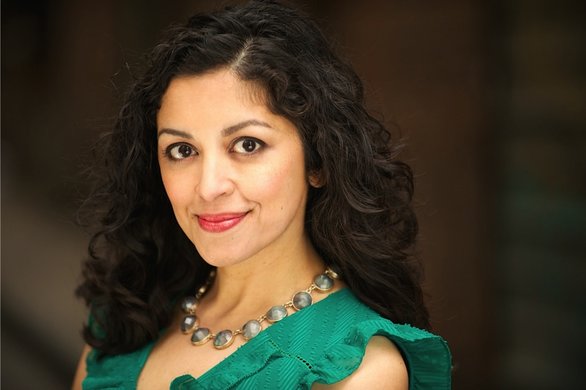

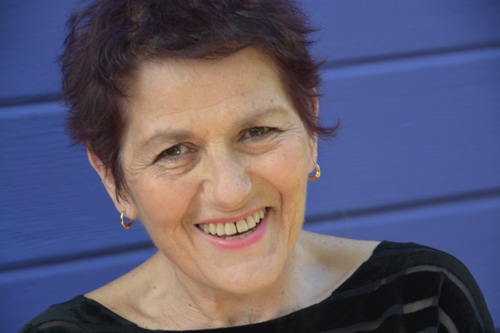
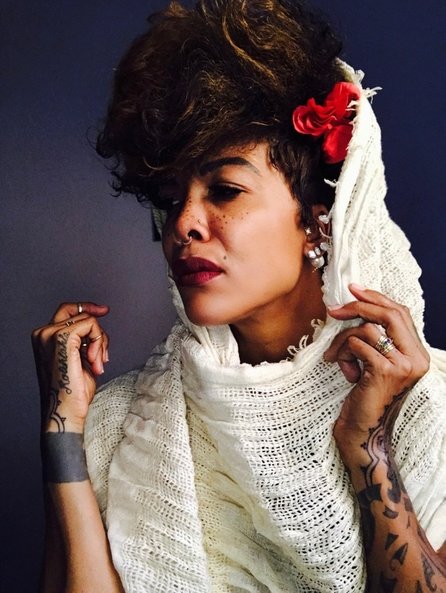
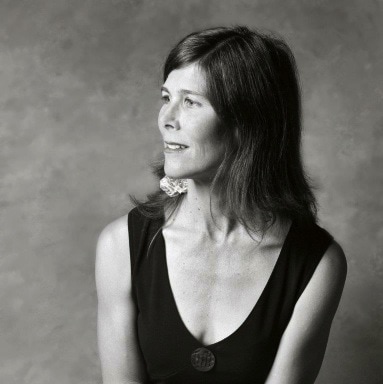
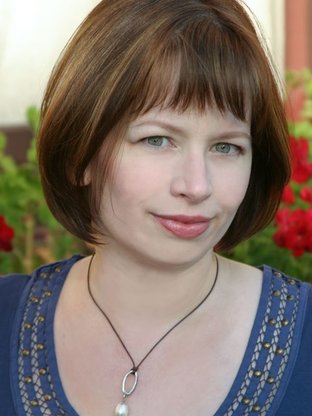
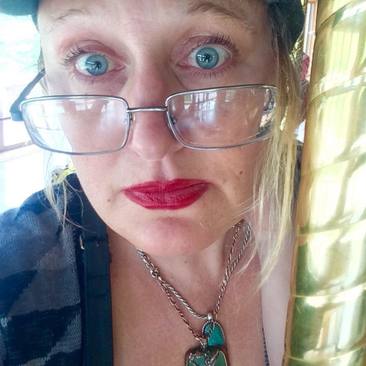

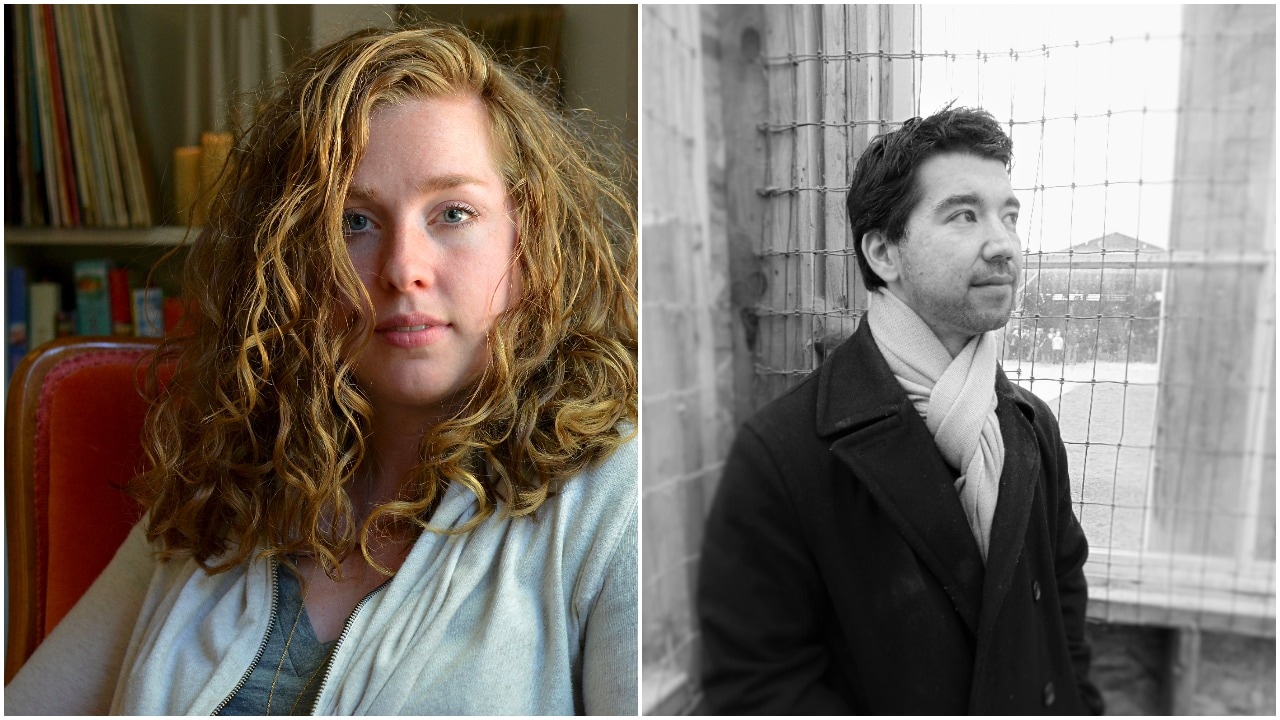
 RSS Feed
RSS Feed